BMA GP Collective Action
GP's are NOT going on strike
GPs are not going on strike and we will remain open as usual.
There is no proposed action that will create a breach of our contracts.
During collective action, GP practices are still required to:
- Make appointments available
- Provide advice or care to patients by another means
- Give advice on alternative services
- Provide access to prescriptions, long-term condition management, vaccinations, diagnoses and referral (including where clinically urgent)
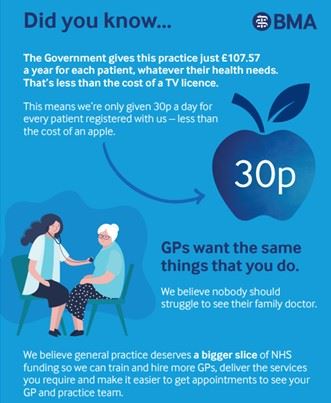
Why Is Collective Action Happening?
General Practice funding is less than £108 per patient per year, this equates to at most 2-3 contacts per year per patient, compared to the cost of an outpatient appointment estimated to start at £130-£400, there is something about demand and reasonable expectation.
The £108 per patient, is to run practice premises and employ staff, this is not enough for GPs to employ enough staff to give patients the care they deserve. The financial situation is unsustainable, with many Practices having to shut, because they cannot afford to keep going.
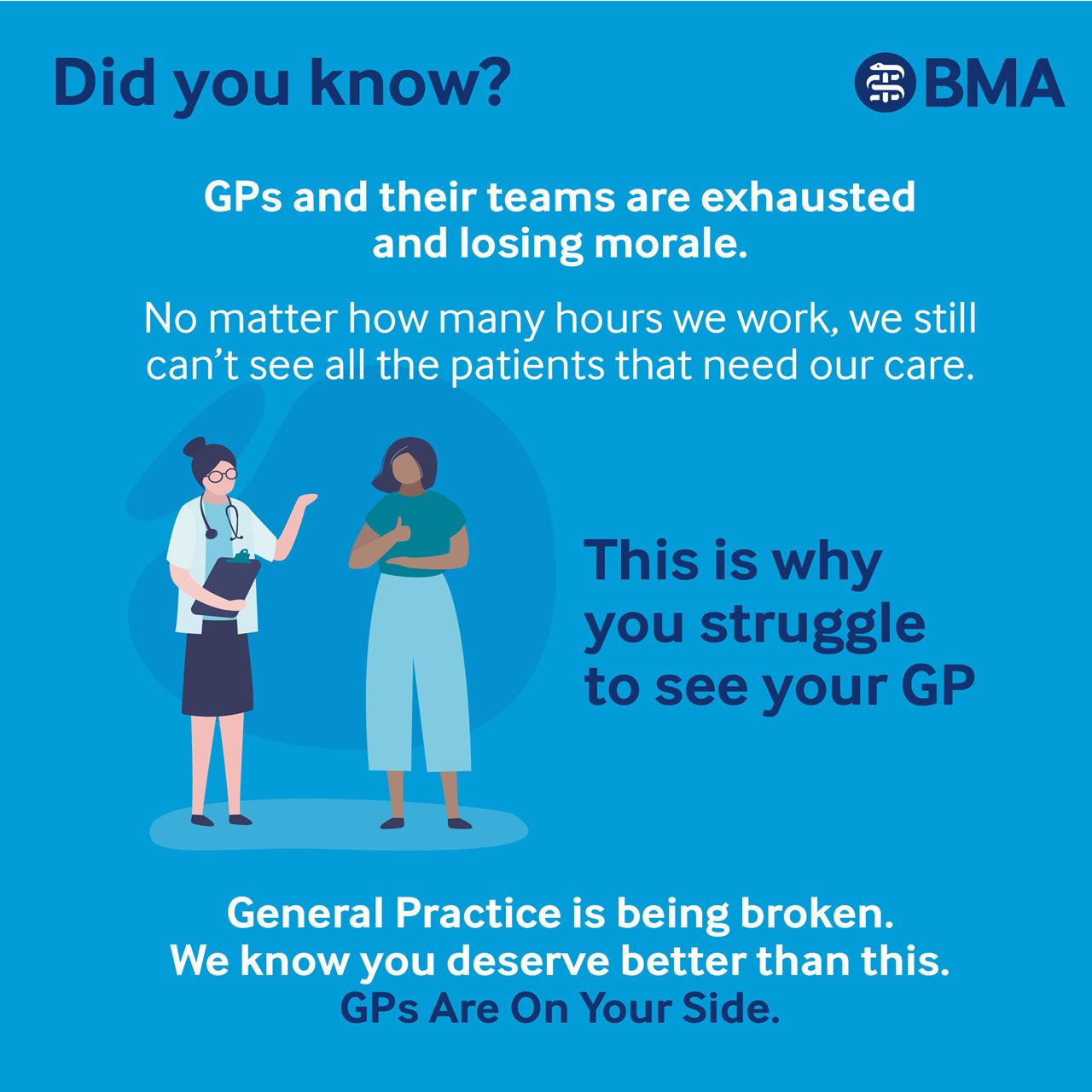
What have the GPs agreed to do as collective action?
- GP surgeries will remain open for all their normal core working hours.
- Number of contacts – they will limit, to a recommended safe number, of contacts per day, others will be diverted to local urgent care settings, once the maximum capacity has been reached.
-
No patients care will be put at risk. It may be that patients will be diverted to local urgent care settings once the GP’s have reached their maximum capacity.
-
GPs are not going to carry out work that they are not contracted to do.
- GPs will not complete unnecessary forms and templates as part of referrals but will still provide all the necessary information that is required to ensure all patients are referred when it is needed for their health problem.
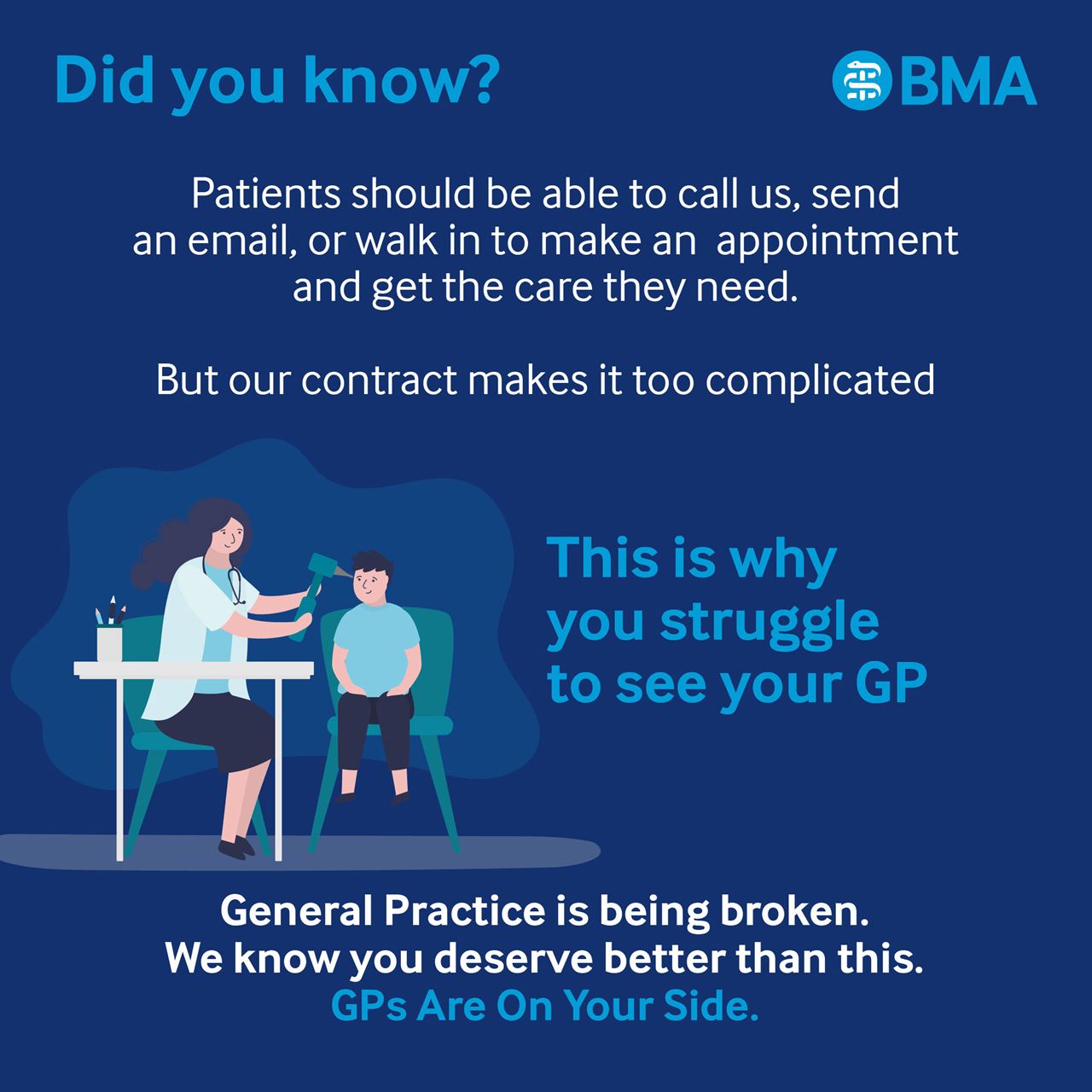
Where else can I get medical advice?
Patients may be directed to other local services by their GP surgery.
As always, patients can also use 111 online for health needs, and only use 999 in a serious or life-threatening emergency.
More information on when to call 999and when to go to A&E is available via the NHS website.
Remember that your local pharmacist may also be able to offer treatment and prescription medicine for some conditions, without you needing to see a GP.
Conditions that pharmacists can treat as part of Pharmacy First are:
- earache (aged 1 to 17 years)
- impetigo (aged 1 year and over)
- infected insect bites (aged 1 year and over)
- shingles (aged 18 years and over)
- sinusitis (aged 12 years and over)
- sore throat (aged 5 years and over)
- urinary tract infections or UTIs (women aged 16 to 64 years)
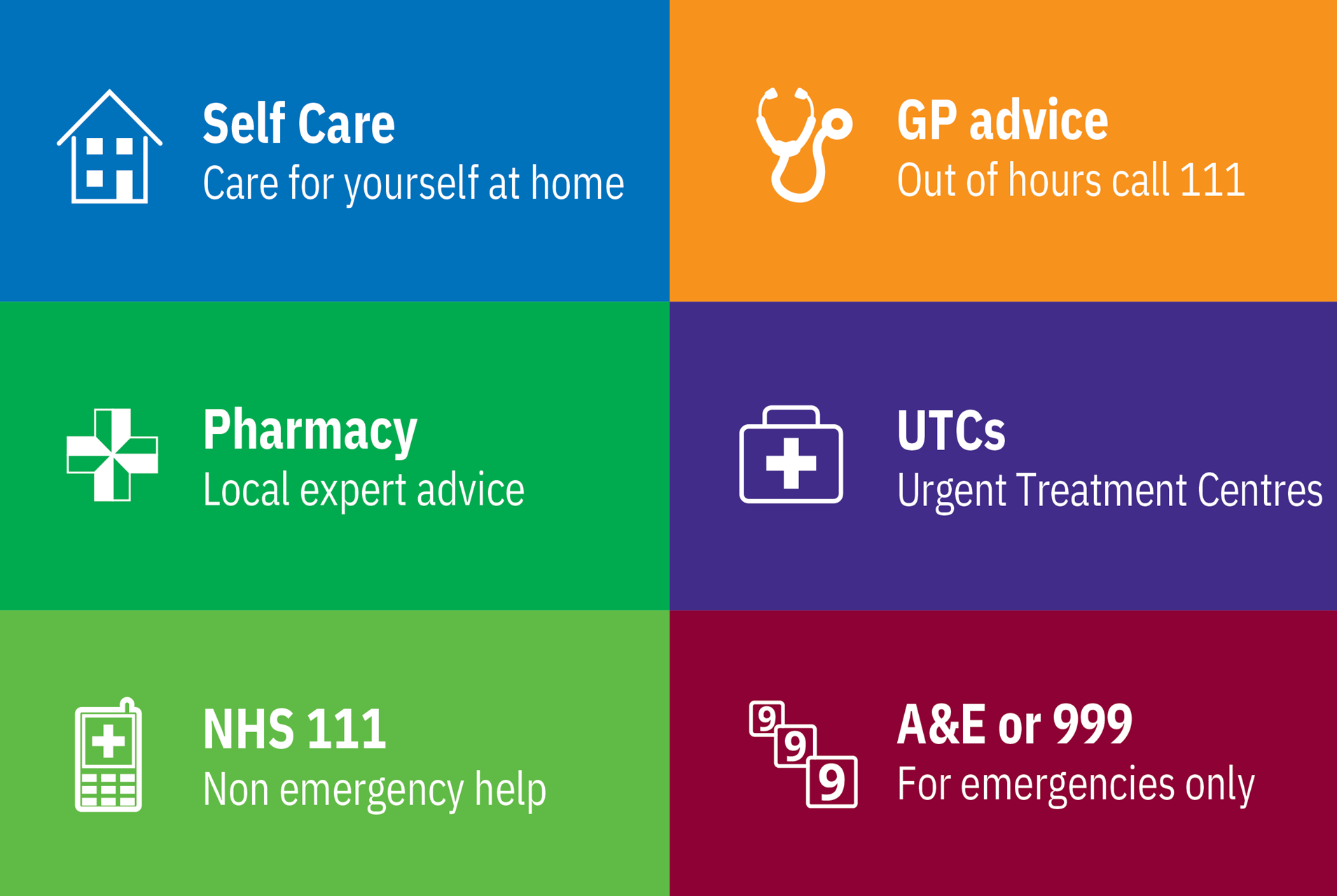
GPs and their teams want their patients to experience safe, high quality and sustainable care, this is difficult without appropriate funding.
Less than 10% of the total NHS funding is allocated to primary care and this is a decreasing percentage, with increasing workload.
More than 90% of NHS work is done in primary care and this is an increasing percentage.
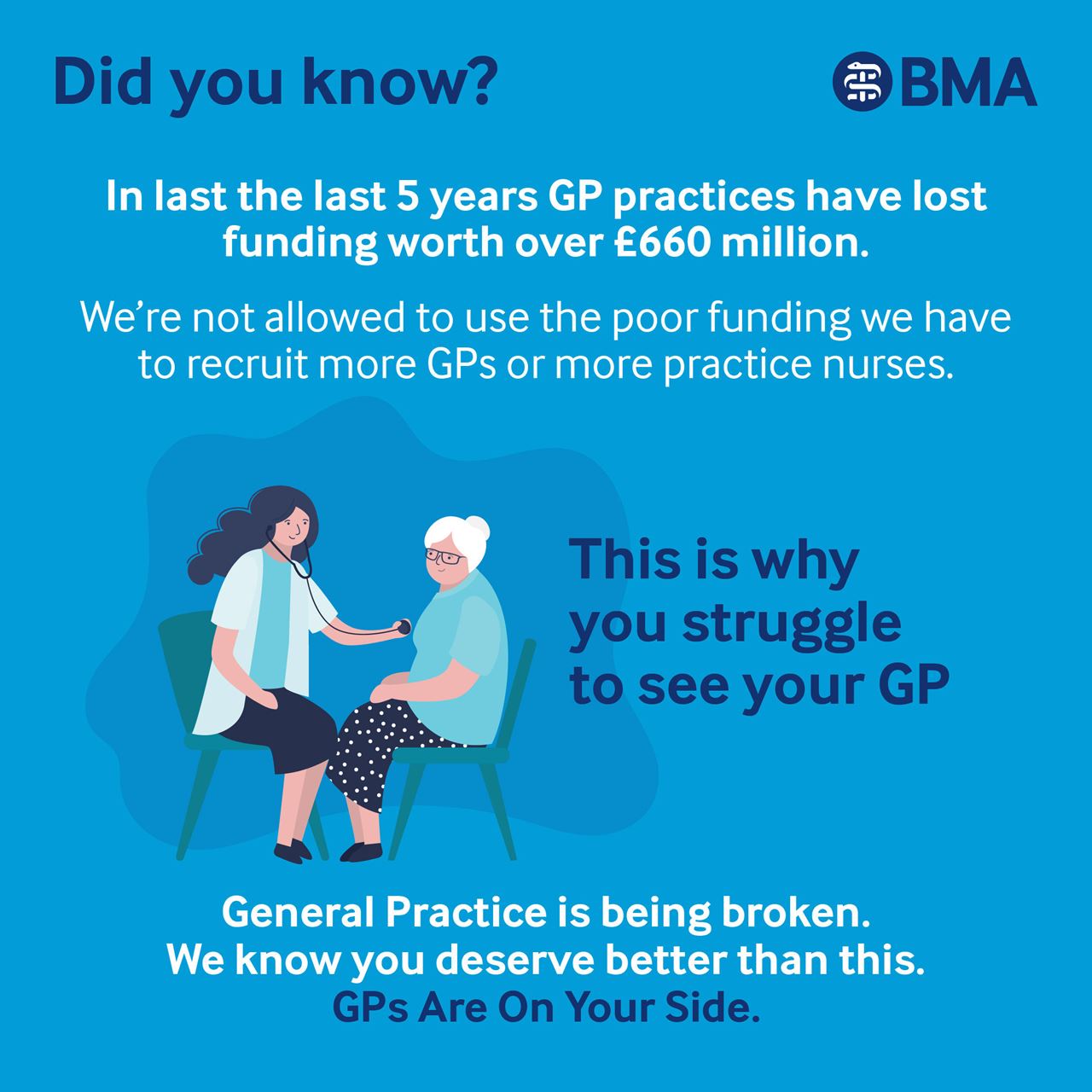
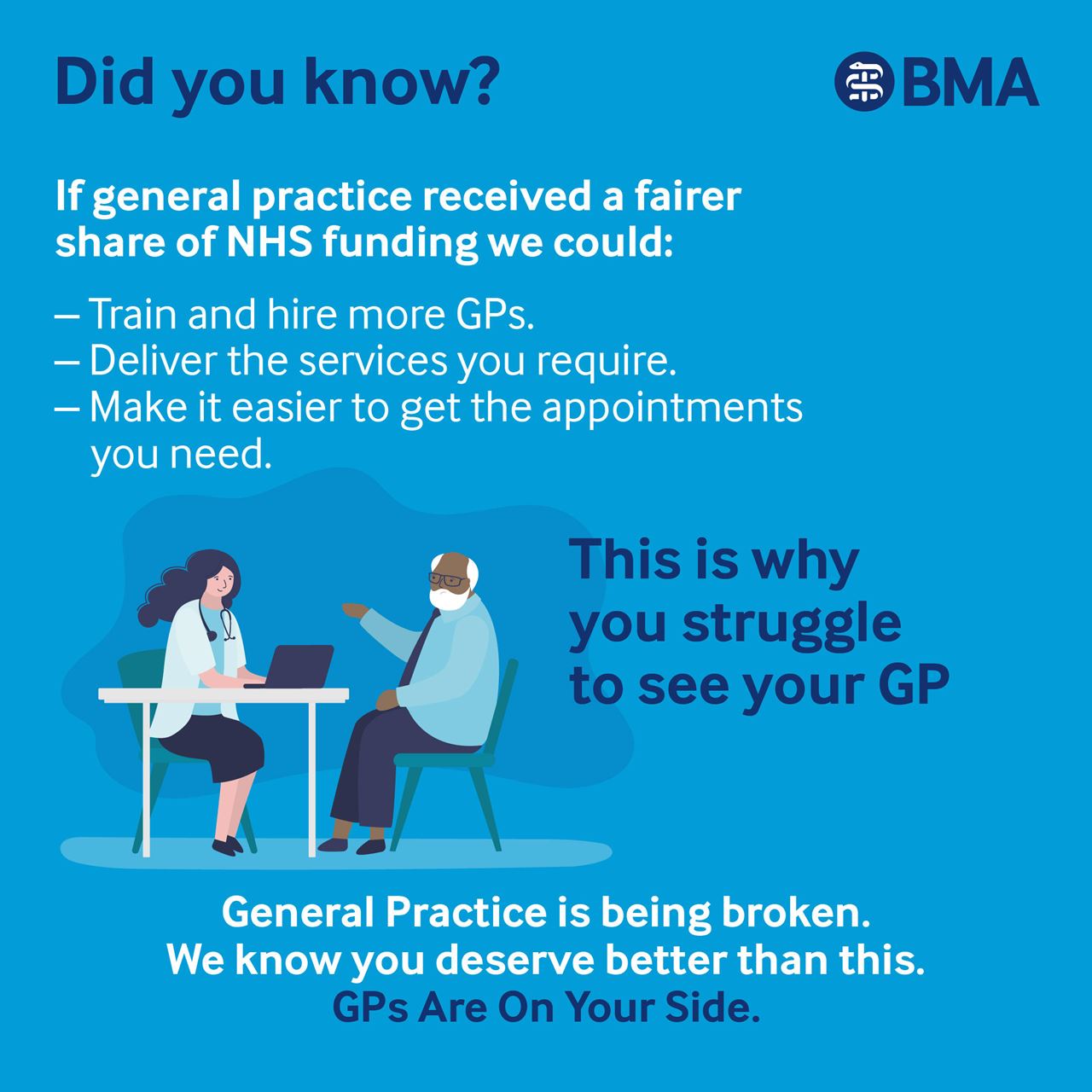
Full details and more information from Cheshire & Merseyside ICB & the British Medical Association regarding the GP Collective Action can be found on their websites using the links below.
Page created: 19 May 2021